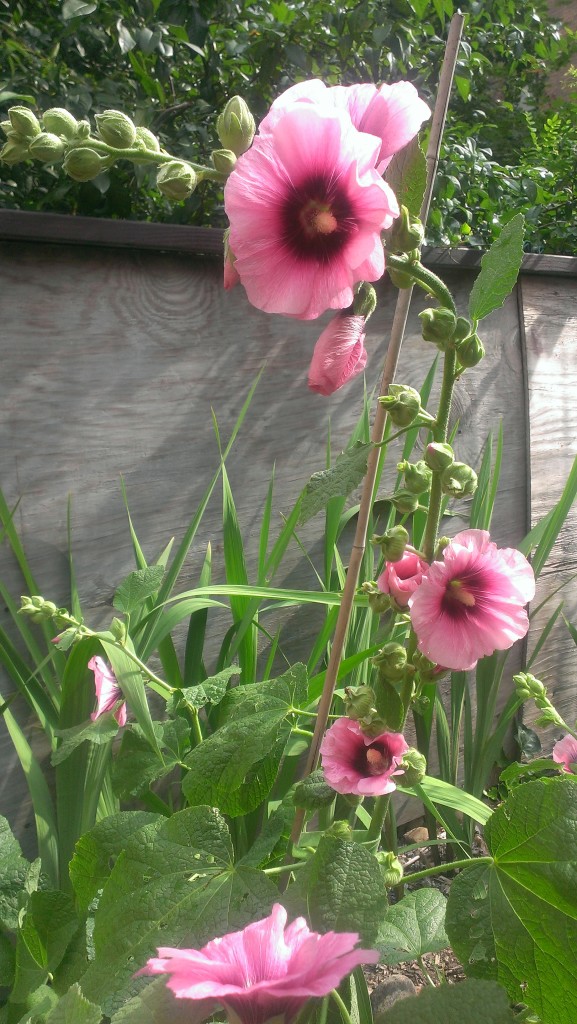Apr 30, 2015 | Goddard, The Writing Life
(reposted from The Writer in the World, the blog for the Goddard College MFA in Creative Writing Program.)
Last week, I was invited to talk to a class at City College in New York. Someone asked me about structure; specifically what I thought of the fact that none of the books on their syllabus, including my memoir, had a traditional structure. It wasn’t until that moment – when I learned that the class I was visiting was called Reading/Writing the Asian American Diaspora – that I considered that my own obsession with fractured structures might be more than individual taste. I am writing from the margins, about otherness, about race. How could I do that with one voice?
One voice is representation. One voice could be all there is. It is only through a multitude of voices that we can get a truer picture of who we are.
This is not a problem faced by those writing about a mainstream, dominant culture. It is essential, though, for those whose stories have been erased, or defined falsely; whose histories have been rewritten. For me, as a half-Japanese American (Hapa) woman from Hawaii, my subjects are secrets, missing inheritance, and erasure because these are part of my family legacy. I write to discover. And the artist in me creates my structures so that my readers will experience that as I do.

My first novel, Why She Left Us, was inspired by my discovery that my Japanese American infant mother and her family were interned behind barbed wire in a camp in the middle of America during Word War II. I quit my job and traveled through time, across the country, to a place of tumult and shame, where people were treated like criminals and stripped of their citizenship, possessions and dignity because they looked (physically, in the way we choose to differentiate people) like the enemy. I found a history of racial discrimination and hatred that had been stripped out of our America-is-the-good-guy narrative, that was not spoken of in families. My answer to “Who am I?” was incomplete until I listened: to the many former internees who shared their stories with me, their secrets, a passing window into their lives.
Splintered truths, disappearances, mysteries: was it any wonder that the structure of my first novel reflected all of these? There was no single “what happened.” There was, and is, a still-shifting, still-surfacing truth.

My memoir, Hiroshima in the Morning, also deals with an erasure: the experience of what happened when the first atomic bomb was dropped on people. Again, this history was redacted not only in our textbooks, but also in families, mine included. The survivors’ – the hibakusha’s – stories had been stifled by death, family, time, and repetition, but the facts were censored from the beginning by the U.S. government, which confiscated pictures, film, and restricted journalists’ movements and stories. The very few accounts that are available are representations of scientific achievements, a life-saving victory, a generous American response to rebuild the faces of a handful of long-suffering “maidens.”
These are not the only stories.
Perhaps because I am the child of a mixed race marriage, I feel these stories slipping away, a drop of ink dissolving into water. I write about them, not as a historian or to establish facts, but because we hide what we are ashamed of. And in our sweeping human history of what “we” did to “them,” our most powerful justification is explicitly or implicitly the concept of race.
Race is not biology. It is a social construct that we use to separate. But it is not the only one. We define all sorts of categories, roles and identities (even motherhood!) to separate ourselves from ourselves: to belittle, or reward, or limit, or control. The beauty of Goddard College is that it attracts writers, thinkers, people who are trying to overcome divisiveness by finding common ground in difference. Another way to say this? MFA students come to Goddard because they have something to say – a way of seeing the world that is uniquely theirs and that they want to share. They don’t come to write like someone else, nor do they come to tell a story that has already been told. They are standing in the margins – whether one we already have a reductive label for, or from a line of sight and an experience that is entirely their own – and they are doing it on purpose to shift their readers’ reality. It is the artist’s calling, and her gift, to challenge our assumptions, to rewrite the victors’ history, and to remind us that the destruction that we cause is our choice and the categories we force upon each other are our fiction.
That’s why we write. And, maybe, why some of us in the “Asian American Diaspora” choose a multiplicity of voices and non-traditional narratives to offer a glimpse into what our collective humanity might look like from a different point of view.
For more posts about writing, and to get a look inside the Goddard Creative Writing Program, please visit our blog: thewriterintheworld.com
Apr 17, 2015 | The Writing Life
 If you are looking for a great book to put on next semester’s reading list, to propose to your book club, or just to spend the day with, PEN announced the finalists for $150,000 in prizes yesterday. How difficult is it to choose five books out of nearly 200? Very. I know.
If you are looking for a great book to put on next semester’s reading list, to propose to your book club, or just to spend the day with, PEN announced the finalists for $150,000 in prizes yesterday. How difficult is it to choose five books out of nearly 200? Very. I know.
The shortlist for the John Kenneth Galbraith award, a $10,000 prize for which I served as a judge, includes Sheri Fink’s “Five Days at Memorial”; Danielle Allen’s “Our Declaration: A Reading of the Declaration of Independence in Defense of Equality”; “League of Denial: The NFL, Concussions and the Battle for Truth,” by Mark Fainaru-Wada and Steve Fainaru; “The Big Truck That Went By: How the World Came to Save Haiti and Left Behind a Disaster,” by Jonathan M. Katz; and “This Changes Everything,” Naomi Klein’s book about climate change.
The Galbraith prize is one of ten to be awarded next month, including awards for fiction, essay writing, science writing, biography, translation, and work by writers of color. Browse all the finalists on the PEN website.
Happy reading!
Jan 21, 2015 | Random Thoughts, The Writing Life
Post State of the Union, the speech that is still sounding in my mind is one that was given back in November: Ursula Le Guin’s address at the National Book Award ceremony. Yes, she chided us for selling books “like deodorant,” but these are the words that are resonating in me:
“Hard times are coming, when we’ll be wanting the voices of writers who can see alternatives to how we live now, can see through our fear-stricken society and its obsessive technologies to other ways of being, and even imagine real grounds for hope. We’ll need writers who can remember freedom – poets, visionaries – realists of a larger reality.”
We will need writers who can remember freedom.
 Chilling thought, especially in a country that purports to be founded on freedom. Our America was to be a new world where human rights were declared and held inalienable. And if that world, sadly, has never yet existed; if the gap between what we want to believe we are and how we actually act is huge and filled with death, torture, slavery, incarceration, brutality, poverty, inequity and fear…it is worth remembering that it was a pamphlet that helped spark the American Revolution: words on a page that conveyed a vision of freedom and individual worth so compelling that people gave their lives for it.
Chilling thought, especially in a country that purports to be founded on freedom. Our America was to be a new world where human rights were declared and held inalienable. And if that world, sadly, has never yet existed; if the gap between what we want to believe we are and how we actually act is huge and filled with death, torture, slavery, incarceration, brutality, poverty, inequity and fear…it is worth remembering that it was a pamphlet that helped spark the American Revolution: words on a page that conveyed a vision of freedom and individual worth so compelling that people gave their lives for it.
Le Guin reminded us that, “Any human power can be resisted and changed by human beings. Resistance and change often begin in art.” Art, after all, is the manifestation of our radical imagination; our means of sharing our vision of a better world.
Writers: If you remember freedom and do not see it around you, start writing. Write about whatever feels urgent to you. It might be family or fantasy; it might be poetry or a post-apocalyptic dystopian TV show. Your truths will resonate, and you will go on record: contributing your vision, no matter how shrouded in metaphor, how personal, to the formation of our collective future. You are change: good or bad, loud or silent. Your choice matters. And if you write because you care and not to be the next best brand of deodorant; if you are fearless in your truths; you can change the world.
Speech excerpts: © 2014 Ursula K. Le Guin
Jan 18, 2015 | Events, Goddard, Hedgebrook, The Writing Life
 Where are you writing? Aerogramme’s new list of retreats for 2015 includes Hedgebrook, an oasis for women writers near and dear to my heart: hard to get into (with 1500 applications this year!) but worth reapplying for, since, once you are a Hedgebrook alumna, you have a family for life. I’ll be teaching there for Vortex with the amazing Ruth Ozeki, who just visited Goddard, where I am on the faculty of the MFA in Creative Writing program, on the coldest day in anyone’s memory in Vermont (minus 23).
Where are you writing? Aerogramme’s new list of retreats for 2015 includes Hedgebrook, an oasis for women writers near and dear to my heart: hard to get into (with 1500 applications this year!) but worth reapplying for, since, once you are a Hedgebrook alumna, you have a family for life. I’ll be teaching there for Vortex with the amazing Ruth Ozeki, who just visited Goddard, where I am on the faculty of the MFA in Creative Writing program, on the coldest day in anyone’s memory in Vermont (minus 23).  At Goddard, we have just finished an action-packed week of writing, reading, learning, listening, dreaming, and thanks to Ruth, meditating our way into our stories so that we can access the world of our stories with our bodies. The MFA students are still talking about you, Ruth, and voraciously reading their new signed copies of A Tale for the Time Being.
At Goddard, we have just finished an action-packed week of writing, reading, learning, listening, dreaming, and thanks to Ruth, meditating our way into our stories so that we can access the world of our stories with our bodies. The MFA students are still talking about you, Ruth, and voraciously reading their new signed copies of A Tale for the Time Being.
If your writing life is inclined less toward a two year Masters’ program, and more toward a three day weekend retreat (and if you are female!) this year, Hedgebrook’s Vortex is offering small workshops, lectures and panel discussions with a new group of teachers, including Carole DeSanti, Dani Shapiro, Victoria Redel, and Hannah Tinti. What an amazing group of writers for a long weekend! (Full bios and brand new workshop descriptions on the Hedgebrook website here.) It would be lovely to see you there, in one of the most magical places I know.
Jul 11, 2014 | Hedgebrook, The Writing Life
Thank you, Hedgebrook, for the hollyhocks in my garden, and the Hedgebrook sisters in my email box, and the space to write and rewrite and have a manuscript to send out into the world today. These flowers are for you.

May 23, 2014 | Hedgebrook, The Writing Life
I am blessed with more than one in my life. This one, Hedgebrook, I am privileged to share with so many amazing women writers, including some of the ones you see here: Holly Morris, Hannah Tinti, Monique Truong, Suheir Hammad, Gloria Steinem. I am so grateful to Lisa Halpern’s magic in creating this documentary, which was aired on PBS on the Seattle Channel in May. Thanks and love to Amy Wheeler, Vito Zingarelli and every single person on the amazing staff who make Hedgebrook happen every day. And to Nancy Nordoff, who dreamed it and gifted her vision to us.
Take a look:
(ArtZone Hedgebrook Special, Women Authoring Change)
Jul 26, 2013 | Random Thoughts
I met Moses last night on the streets in the West Village where he is living. He lost his leg and his mother when he was thirty five, and now he is over forty with a shiny prosthetic that hurts. He carries four small plastic bags of stuff. On the street, things get stolen. Moses used to work as a carpenter; he believes in compassion; and the server at the restaurant we walked into to get him a hamburger told him she would not seat him until I made it clear he was with me and I was buying. But then the manager came over and was very nice, and when I left, he thanked me for coming. Moses’s drink of choice was water. He is trying to get disability and social security and he has been denied, but he is still trying. His next hearing is on August 5th – my fiftieth birthday. So if you have some light and love to share that day, please send them to Moses.
Jun 18, 2013 | Hiroshima in the Morning, Motherhood in the Media
A friend of mine recently advised me that I should refrain from doing TV shows like 20/20 because “they don’t serve me” and they won’t sell my memoir. But I don’t do them to serve myself, nor do I do them to sell my book. If someone bought my book expecting it to be an inside look into the life of a noncustodial mother, they would be reselling it on ebay in short order.
Hiroshima in the Morning is about motherhood, yes. How I didn’t want to be a mother, how I had to reconfigure motherhood in order to remain in the lives of the children I loved, about losing my own mother to Alzheimer’s. But it’s also the story of finding oneself in a new place, about Japan, war, history, storytelling and memory.
As for serving myself, my motherhood is one aspect of me, and as my boys grow up and start looking at college and find summer jobs halfway across the world, my role in their lives is changing. In two short years, public response to my family is radically different; it has moved from outrage to gratitude. There are many women out there who are tired of equating female and sacrifice. As one friend pointed out, we readily agree that we should put on the oxygen mask first so we can help others in the case of an airplane emergency. Why is it so hard to accept that a woman might be more than a mother, and that that ‘more’ might enrich her family as well?
I speak out because no one else is asking: What if nurture wasn’t considered feminine? How much better would our society be? How many women, families and men would be allowed to bloom and create their lives as best serves them?
Nurture and love should be the priorities for our society. And as our social contracts break down and we decide we are too poor and threatened to fund education, or make sure our citizens have a place to live and food to eat, or to stop poisoning our environment because that costs more; as the gap between rich and poor becomes dangerously large; it is too easy to point to women and put the burden for nurture on their backs in the name of the “mothering instinct.” That is very clearly not serving us.
We need a new paradigm. And watching the old one kick and fuss on its way to extinction is a very good sign.
Jun 15, 2013 | Hiroshima in the Morning, Motherhood in the Media
Should a mother love her children more than herself? Shouldn’t mothers sacrifice for their children? Put care for her children ahead of care for herself? What is society telling us a mother should be, and what does that say about how we value women? Moms Moving Out, 20/20 ABC-TV asks Talyaa Leira and me these questions and more. Watch here:
Jun 13, 2013 | Events, Hedgebrook, Hiroshima in the Morning, The Writing Life
2013 Fall/Winter Master Class Retreats
Claiming Your Truth, with Rahna Reiko Rizzuto
Dates: November 2 – 9, 2013
“What would happen if one woman told the truth about her life? The world would split open.” ― Muriel Rukeyser
Storytelling is a radical act. By sharing our own truths, we can heal, reveal, inspire, and challenge: literally recreating the world. In memoir, honesty is everything, but re-living our experiences and turning life into art can be one of the most challenging things we do. This workshop will help you find your central question and use it to find the shape of your manuscript. You will learn to be kind to your characters (including yourself) and also ruthless. You will balance an immersion into your past with the safety of the present. We will talk about placing your personal story in a broader social context.
Join me in one of the world’s most idyllic writing settings, Hedgebrook, the retreat that supports extraordinary work by visionary women. More information here, and on hedgebrook.org.
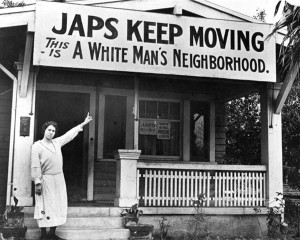
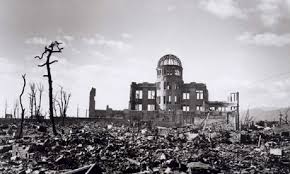
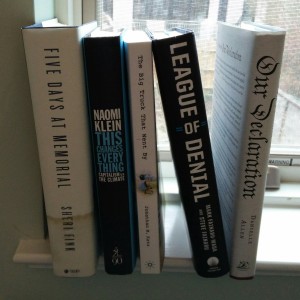
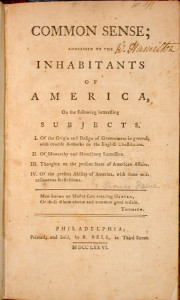
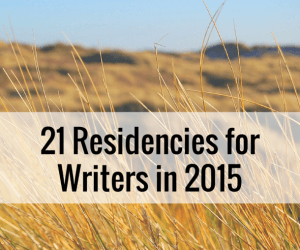
 At
At 